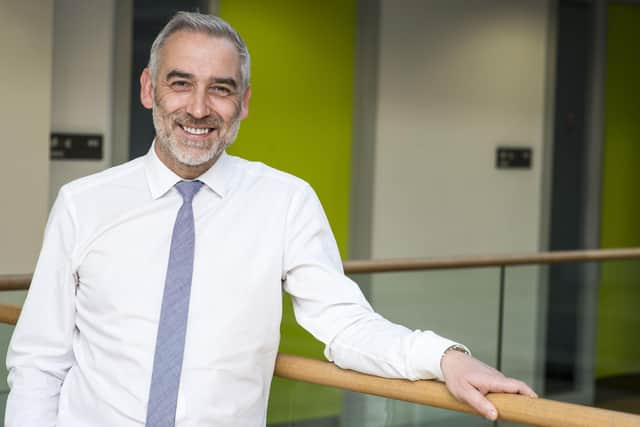Long-term thinking is needed in education and across the public sector - Mark Wilson
The latest government data has revealed that a further 41 schools have been found to contain the dangerous RAAC concrete, including three in Bradford and one in Kirklees. This brings the total number of Yorkshire schools affected to 10. We knew RAAC had a relatively short shelf life when first used, but no one planned effectively for what we should do to manage this in the long term. This ‘leave tomorrow’s problems until tomorrow’ approach is one that I see time and time again across education.
The constant turnover of Education Secretaries, six in this Parliamentary-term alone, illustrates the instability and rapid policy changes education leaders have to constantly navigate. The short-term-thinking approach driven by the election cycle results in a public sector perpetually in firefighting mode. Rather than proactively addressing specific challenges until they are under control, education leaders find themselves dealing reactively and almost constantly with endemic issues on multiple fronts.
Advertisement
Hide AdAdvertisement
Hide AdRather than operating in permanent short-termism, we should be 'Cathedral Thinking.’ Centuries ago, architects and designers took on the grand task of building the great cathedrals knowing they might not live to see the completion of their work. They embraced a long-term, visionary perspective, which is precisely what we need in education and across the public sector.


Without it, we can only handle problems as they arise, with no chance of preventing recurrence. ‘Prevention is better than cure’ has almost been lost from our thinking, leading to never-ending challenges and near constant anxiety. It's no surprise that the public sector is suffering from an ongoing talent drain.
The repercussions of short-termism are evident in terms of recruitment and retention, the quality and good repair of our school buildings, in curricula built for today rather than the world our children will be inheriting, in pivoting towards whatever measure Ofsted has as its flavour-of-the-framework. We must develop long-term plans for recruiting, training, and retaining our education workforce, considering the skills and expertise needed in the decades to come. We must release more capacity amongst the workforce already in our schools. We must address the workload challenge head-on. We cannot do this when Headteachers face daily challenges requiring immediate attention.
A lack of funding is most often cited as the key barrier to fundamental change. Education currently receives 4.6 per cent of all public sector spending, the second-largest allocation after Health.
Advertisement
Hide AdAdvertisement
Hide AdSignificant increases in funding seem unlikely for years to come. Therefore, we must become more resourceful with what we have.
Our leaders need the training, space, and time to plan for the long term instead of being on a constant treadmill of the annual cycle, always with the next Ofsted inspection in mind. By prioritising long-term legacies over in-the-moment inspection reports, we could address many of our challenges without requiring limitless funding increases in order to do so.
Mark Wilson is CEO of Wellspring Academy Trust.